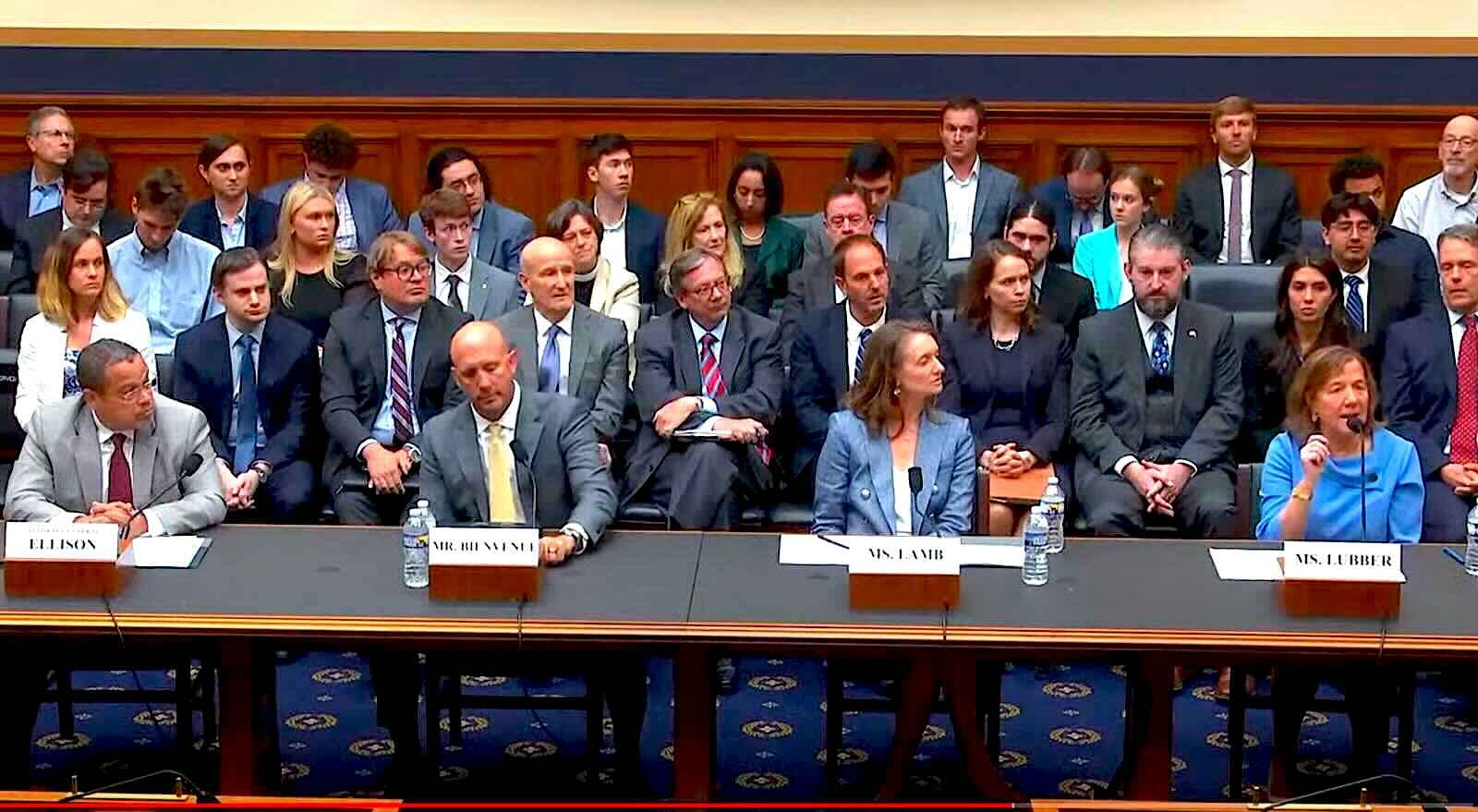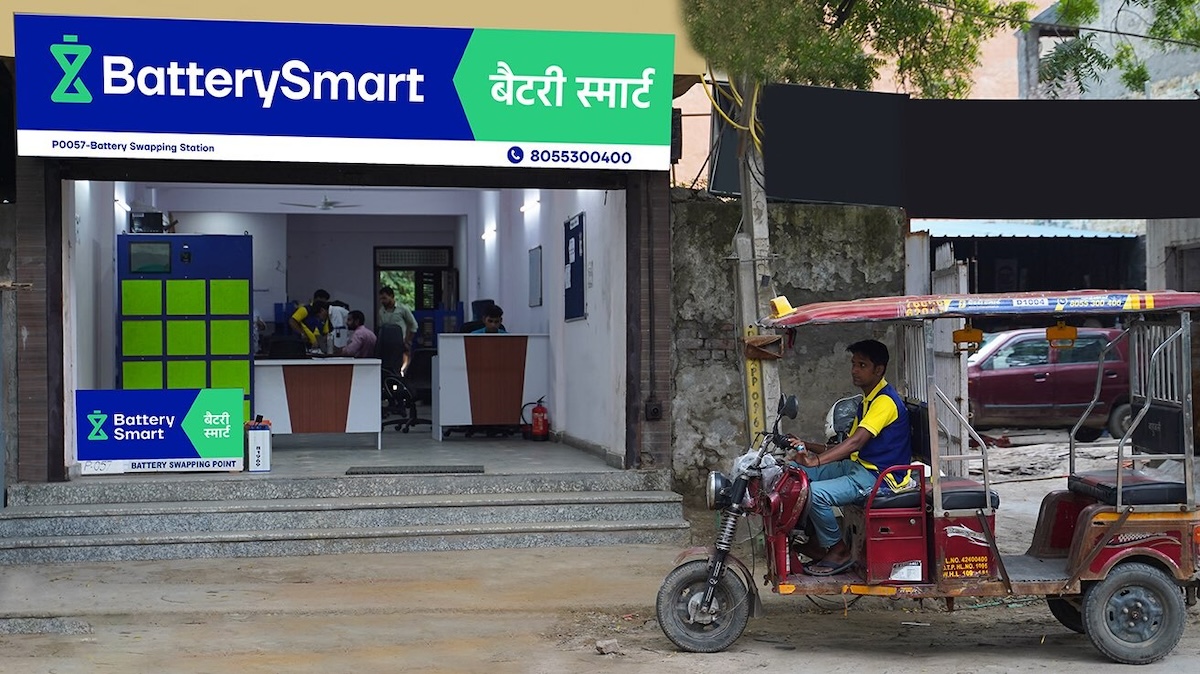Greetings Agents of Impact!
In today’s Brief:
- Ownership works, says Blackstone
- Guaranteeing green exporters in Turkey
- Boosting investor confidence in US-fueled green finance
Featured: Ownership Economy
Blackstone’s embrace of employee ownership signals a shift in private equity – and in the power of workers. When Blackstone makes its next large private equity purchase in the US, it will grant equity shares to most workers at the company. The $143 billion private equity investor, more recently known for layoffs at some of the companies it owns, told The Wall Street Journal it will adopt broad-based employee ownership as part of its US buyout strategy. Expanding profit-sharing to workers beyond senior management roles is key to fostering a more inclusive and productive workforce – and retaining employees. “In what we’re trying to do across our portfolio, broad-based equity ownership is just a part of a much more important path,” Joseph Baratta, the firm’s global head of private equity, told the WSJ.
- Wealth-sharing. The notion of broadly offering equity compensation to hourly employees and other frontline workers is catching on in the private equity industry, which employs some 12 million workers in the US. KKR, one of Blackstone’s competitors, began implementing broad-based ownership programs in its manufacturing businesses in 2011. KKR’s Pete Stavros this month touted such wealth-sharing on 60 Minutes. “This is an unbelievably popular idea with liberal progressives, and MAGA Republicans, and everyone in between,” Stavros said. “It’s not a government handout. This is a benefit tied to work. And, the outcomes are driven by performance.” (You may have first heard Stavros on our 2020 podcast.)
- New leaf. Private equity giants have labored for years to throw off the reputation that they extract enormous profits while leaving behind mountains of debts and thousands of unemployed workers. More recently, they’ve been criticized for scooping up single-family homes and turning them into pricey rentals. The private equity industry can be a key lever in creating quality jobs, Megha Bansal Rizoli of Jobs For the Future told ImpactAlpha earlier this year. “The old ways of working aren’t the only ways of working anymore.”
- Portfolio building. Blackstone has implemented rank and file employee ownership programs at select portfolio companies. It now says it will apply the strategy on all new deals in which its private-equity unit takes a controlling stake. First up: Copeland, the former global climate tech unit of St. Louis-based manufacturer Emerson. Blackstone acquired a 60% controlling stake in the company for $14 billion in 2022. The roughly 18,000 workers of Copeland, which manufactures smart compressors, valves and other devices for clean heating, ventilation, air conditioning and refrigeration, will now have an opportunity to share a portion of the firm’s profits via equity-linked bonuses.
- Good jobs, better value. Employee ownership has emerged as a key strategy for improving business performance and retaining workers, especially in this challenging labor market. The embrace of shared ownership by another large private equity firm “suggests they see the returns-generating power of making jobs better all the way down the org chart,” Ellen Frank-Miller of Workforce and Organizational Research Center, or WORC, tells ImpactAlpha. Last week WORC released a study highlighting an increased emphasis on value creation through human capital management at TPG, Blackrock and other private equity firms (see ImpactAlpha’s coverage, “The next frontier of private equity value creation: Better jobs for frontline workers).
- Keep reading, “Blackstone’s embrace of employee ownership signals a shift in private equity – and in the power of workers,” by Roodgally Senatus on ImpactAlpha.
Dealflow: Energy Transition
Asian Infrastructure Investment Bank provides $200 million guarantee for loans to Turkey’s green exporters. The Beijing-based sustainable infrastructure investor provided a $200 million guarantee to backstop a 10-year, $300 million loan from ING Bank, Société Générale and Standard Chartered Bank to Türk Eximbank that will fund exporters in renewable energy and water efficiency. The deal is the first 100% “green” transaction for Türk Eximbank, which provides financing and credit for Turkey’s exporters. The initiative will prioritize women-led ventures. Türk Eximbank bank says it is nearing completion of an additional $1.2 billion in long-term financing to fund the green transition and renewable energy investments.
- Green infrastructure. The Asian Infrastructure Investment Bank is looking to mobilize $50 billion by 2030 for infrastructure projects in low-carbon public transportation, water and renewable energy. AIIB’s guarantee will cover 70% of Türk Eximbank’s green loan. The partnership “exemplifies AIIB’s strategic focus on leveraging innovative financial instruments to mobilize private capital for green infrastructure projects,” said AIIB’s Najeeb Haider. Last year, AIIB launched an early-stage VC fund that mobilized $160 million for green infrastructure startups, and issued a $1.6 billion sustainable development bond.
A $40 million rail transit bond in Northern Indiana aims to expand economic opportunity. Metra, the Lake Michigan network of 11 train lines and 242 stations, forms an indispensable part of Chicago’s transportation infrastructure. Metra’s South Shore Line connects commuters and occasional riders from Chicago to Indiana suburbs and the city of South Bend. The Northern Indiana Commuter Transportation District raised $40 million through a municipal bond issued in March to add a second track from Gary to Michigan City. The bond is being featured as part of ImpactAlpha’s collaboration with HIP Investor to highlight municipal bonds with environmental or social significance.
- Inclusive mobility. “Enhanced commuter rail service translates to improved mobility and accessibility, benefiting individuals from diverse socioeconomic backgrounds, including the majority Black population in South Chicago,” wrote Stella Yao of HIP Investor, which rates the Indiana issuer’s social impact at 64.2 out of 100. That surpasses both the national average of 42.1 and the average of similar urban transit agencies at 53.6. Notably, the Northern Indiana Commuter Transportation District is one of only 13 100% electric transit agencies nationwide.
Dealflow overflow. Investment news crossing our desks:
- ESG data platform Novata raised new funding from existing investors Hamilton Lane and S&P Global, and new investor Motive Ventures. (Novata)
- Direct air capture company Global Thermostat, chaired by Edgar Bronfman Jr., was acquired by Zero Carbon Systems for an undisclosed amount. The two carbon removal companies have a long partnership. (Axios)
- Ore Energy, a Dutch startup developing iron-air long-duration storage, debuted with a €10 million ($10.8 million) seed round led by funding from Positron Ventures. (TechCrunch)
Signals: Deploy!
How standards can boost investor confidence in a fairer, greener financial infrastructure in the US. The Biden administration’s green agenda, most centrally the $27 billion Greenhouse Gas Reduction Fund, aims to bring green technologies and resilient infrastructure to US communities of all income levels. It’s more than a grant program or subsidized approach, the network of stakeholders it creates to mobilize and deploy capital is a new green financial infrastructure for the country. Similar to any public initiative, “this undertaking comes with implementation risks that, if left unaddressed, could result in less-than-optimal outcomes,” warns Oswaldo Acosta of City First Enterprises in a guest post.
- Products and underwriting. The Environmental Protection Agency last month announced key awards from the GGRF to three coalitions of green banks and community lenders – Power Forward, Climate United and the Coalition for Green Capital. “The need to invest billions in financing over the coming years while remaining compliant with EPA regulations will require award winners and community lenders to design standardized financial products and underwriting approaches that can be deployed at scale throughout the nation,” wrote Milken Institute’s Rachel Reilly for ImpactAlpha.
- Standards and streamlining. “Adoption of market-enabling standards will be central to the success of GGRF,” argues Acosta. Establishing clear guidelines and transparency in project selection criteria “will boost investor confidence, while enabling measurable impact,” he says. Acosta points to The Trust Indenture Act of 1939, which created a framework that led to modern mortgage systems worldwide, for guidance.
- Keep reading, “How standards can boost investor confidence in a fairer, greener financial infrastructure,” by City First Enterprises’ Oswaldo Acosta on ImpactAlpha.
Agents of Impact: Follow the Talent
Elizabeth McGeveran is promoted to a newly created vice president of investments role at McKnight Foundation, among other people moves at the Minneapolis-based foundation… Kataly Foundation seeks a Bay Area-based integrated capital officer to support the work of its Restorative Economies Fund… Africa Enterprise Challenge Fund is recruiting a head of gender and inclusion.
👉 View (or post) impact investing jobs on ImpactAlpha’s Career Hub.
Thank you for your impact!
– May 23, 2024











